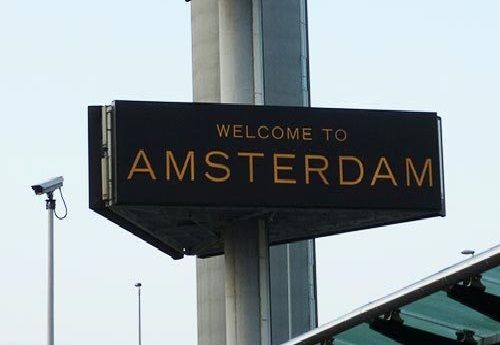The Netherlands is facing pressure to ease the toughest rules on bankers’ bonuses in the world, as financial centres seek to grab banking business from London after Britain’s EU exit.
But the country appears likely to resist a complete U-turn, saying it does not want to attract risk-taking banks at any cost, and will try to lure financial services activities that do not rely on paying staff bumper bonuses.
Such a strategy will see it try to win back-office banking roles, clearing activities, insurance, fintech and other professional services that need to access the EU.
Amsterdam is regarded by many as the most attractive alternative to London for banks looking for a new entry into the EU, but the Dutch bonus tax could be a blocker for many US banks and senior banking roles.
As a result, several banking and headhunting sources said calls are rising for the Dutch government to consider easing a law that restricts bonuses for bankers to 20% of their fixed pay.
“There are going to be some discussions about it. It’s a difficult issue, but you never know,” said one person in the Dutch banking industry.
Dutch Prime Minister Mark Rutte this month fanned expectations that there could be more room for manoeuvre, saying that if the rules were read carefully there was “some flexibility for foreigners”.
The law states that the 20% cap applies to companies with a “main office” in the Netherlands, or employees who “primarily work in the Netherlands”.
Bonus culture
Officials have since downplayed the chance of any imminent change, however. Finance Minister Jeroen Dijsselbloem said he believed big investment banks were driven by a bonus culture and he did not see any room for that in the Netherlands.
“Banks and companies are welcome in the Netherlands but they have to comply with our bonus rules,” a spokesman for the Ministry of Finance said.
The Netherlands introduced a cap that goes far further than the EU’s policy on bonuses after the collapse of ABN AMRO sparked widespread anger at banks and their culture. EU rules limit bonuses to 100% of fixed pay, or 200% with shareholders’ approval. Dutch bankers also have to take an oath of good behaviour as part of a push to improve culture and conduct.
Language and labour laws
Amsterdam could be an ideal alternative to London for banks, headhunters and bankers said.
Most attention has been on Paris, Frankfurt and Dublin winning business from London, but the Dutch capital ranks higher or equally in terms of language, culture, talent pool, schools, transport, infrastructure, an open economy and Anglo-Saxon approach to business and, most significantly, labour laws.
“Banks and companies are welcome in the Netherlands but they have to comply with our bonus rules”
“It has an educated and much more flexible workforce. Banks would have a much harder time under German or French labour laws. That’s why I think any bank would be very wary of Paris in particular,” one industry source said.
A KPMG study of business costs in 2014 ranked the Netherlands the third-cheapest of major countries in the world, after only Mexico and Canada and just ahead of Britain. The study ranked Germany as the only country more expensive than the United States.
But the Netherlands has seen a slump in banking employees over the past decade as ABN AMRO and other firms have shrunk. About 84,500 people were employed by banks in 2014, down 30% from the 121,500 in 2002 and 19,000 fewer than in 2008, according to the Netherlands Banking Association.
About 55 overseas banks have operations in the country, but many just have representative offices.
The terms of Britain’s exit and financial “passporting” are likely to take at least two years to resolve but banks are considering their options now, even if they will not start moving staff this year, industry sources said. A likely outcome is banks co-locating, with a significant London operation and an enlarged presence in an EU country.
Critical part
Morgan Stanley CEO James Gorman last week said his bank and others may need to have a European headquarters in a major city outside London, but the UK would still remain “a critical part” of its “global footprint”. He said it would take five to 10 years for the aftermath of Brexit to unfold and nothing major was about to change.
Amsterdam has long competed with other cities to attract Asian, US and other companies as a gateway to Europe, and it is raising its effort and receiving a lot of interest.
“We’re going to keep doing what we did, but we’re going to step it up and focus more on what’s happening in London,” Sebastiaan Meijer, spokesman for Amsterdam City Hall, told IFR.
The bonus tax is not the only potential drawback to Amsterdam, however.
Britain’s vote to leave the EU has sparked calls for the Netherlands to follow, and many regard it as the most likely country to do so.
The Netherlands goes to the polls to elect a new government in March 2017 and discussion about “Nexit” is expected to become a hot political theme, potentially deterring banks from jumping from London to Amsterdam just yet.
